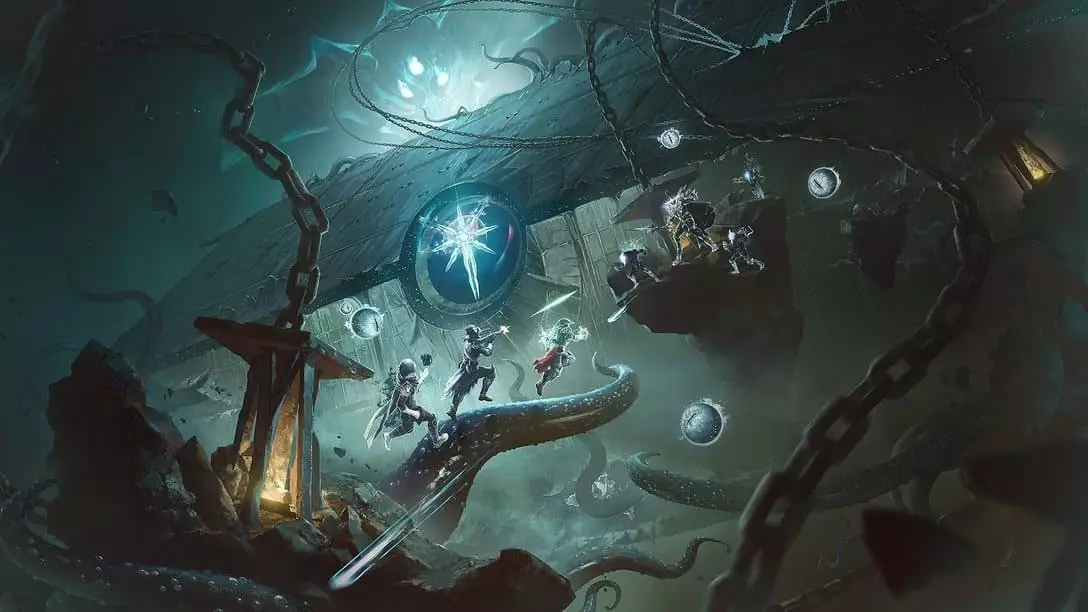As Destiny 2 gears up for the release of its highly anticipated Heresy DLC on February 4, 2025, players are reminded that the game will face unique challenges due to ongoing industry-wide strikes affecting voice actors. This situation, largely driven by the SAG-AFTRA union’s insistent demands for enhanced protections against the potential misuse of artificial intelligence (AI), highlights a significant turning point in the gaming industry and the way narrative-driven content is delivered.
Voice acting is integral to the immersive experience of modern video games. It adds depth to characters, enhances storytelling, and creates emotional connections between players and the game world. However, with the current strike making it impossible for many actors to record new lines, Bungie has informed players that some voice lines in the Heresy DLC will remain silent. Instead, players will rely on subtitles, which will be enabled by default to ensure that critical narrative elements are not overlooked. Customization options for these subtitles, such as size and color, are intended to enhance accessibility, demonstrating a commitment to player engagement, even amidst difficult circumstances.
This reliance on subtitles raises questions about narrative delivery and player engagement. Will the absence of vocal performances hinder the overall storytelling experience? Potentially yes. Subtitling can only do so much to compensate for the loss of a character’s vocal nuances and emotional inflections that voice acting naturally provides. Such a departure may lead to a diverse range of reactions among the player base, as some may feel detached from the story due to this significant alteration.
The context surrounding the strike is crucial for understanding its ramifications. The SAG-AFTRA union members have been advocating for contracts that encompass protections against the unregulated use of their likenesses, voices, and performances through AI. The union has drawn a line in the sand, stating that without guaranteed rights, it cannot allow companies to exploit its members under the guise of technology. This push back has garnered attention, particularly from industry leaders like Fran Drescher, SAG-AFTRA president. Her remarks reiterate the necessity for fair treatment and the prohibition of exploitative practices by corporations.
The implications of the strike extend beyond just Destiny 2. Other game developers, including Riot Games and Kojima Productions, have also disclosed that their upcoming titles will suffer from missing voiceovers. This collective disruption poses a larger, more serious concern for the gaming industry—how will it navigate innovation while respecting the rights of its creative talent?
Interim Agreements and the Future of Game Production
While many companies have chosen to sign interim agreements to continue projects with union talent, Bungie has not followed suit, which has directly impacted the development of Heresy. This discrepancy points to the broader challenges that developers face in maintaining production schedules and ensuring quality. The repercussions of the strike may lead to delays in game releases, altered game design, and potentially, a decline in overall narrative quality.
Despite being further in the negotiation process, the lack of substantial progress since the strike’s inception remains concerning. As the industry grapples with the balance between technological advancement and protecting creative rights, the risk of AI misuse looms larger. The absence of a robust agreement regarding AI protections leaves room for exploitation, sparking fears among actors and creators alike.
The delays in voice acting production and the uncertainty surrounding the negotiation outcomes represent more than just challenges for game developers—they signify a critical juncture for the industry as a whole. With resources and creativity strained, the way forward requires collaboration, compromise, and a commitment to safeguarding the future of voice acting in video games. As players await the release of the Heresy DLC, the outcomes of these negotiations will undoubtedly shape the landscape of gaming narratives for years to come, and the industry must decide how it values the contributions of its talent amidst the technological advancements of AI.

